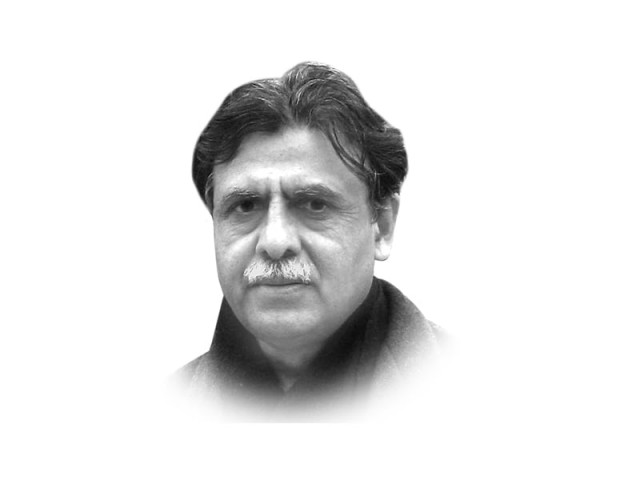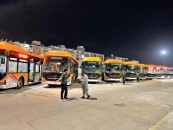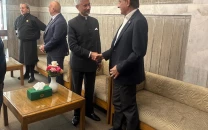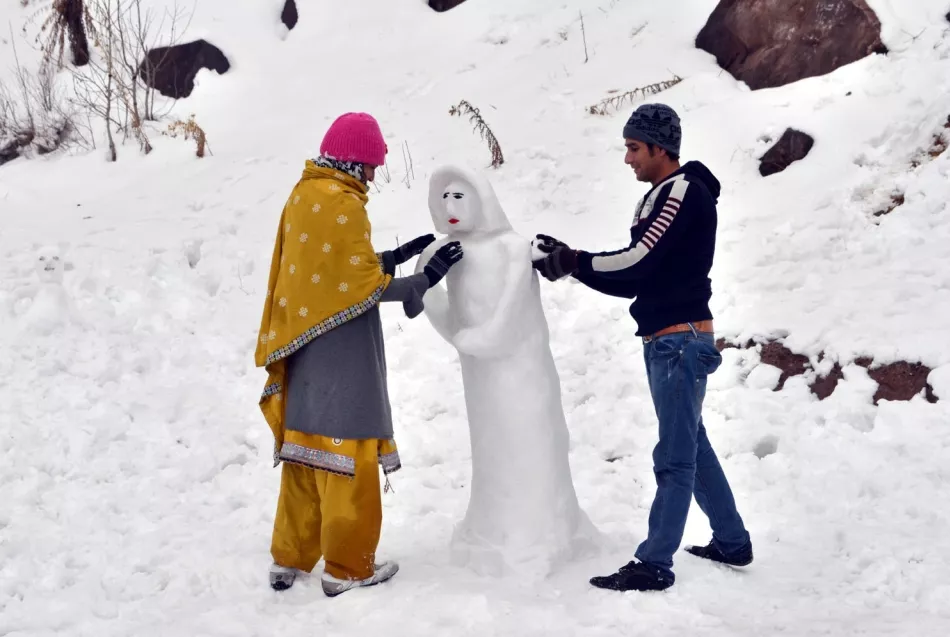Remembering Dhaka
What happened in 1971 was on account of festering economic inequity, aggravated by cultural and linguistic cleavages.

The writer is a public policy analyst, a former interior secretary and an alumnus of Dhaka University
I landed in Dhaka after the 1965 war as an undergraduate student. For the next few turbulent years up till 1970, Salimullah Muslim Hall close to the well known Plassey Barracks was my abode. This hostel, known for its architectural elegance, was built in the earlier part of the century and named after Nawab Sir Saleemullah, who hosted the historic Muslim League delegation in 1906. The 1965 war with India had equally charged our Bengali compatriots, who demonstrated exemplary spirit but that soon tapered off. People felt left out and defenceless, though the Indian forces did not launch a full-scale attack on the eastern front. In a quick succession of events, Sheikh Mujibur Rehman launched his historic six points underlining complete regional autonomy for East Pakistan. In a year or two, he was charged under the Agartala conspiracy case, which created a further wedge between the two wings.
During all these years, Dhaka University pulsated with a flurry of activities. As a West Pakistani student, I could hang out with the young disciples of Maulana Maududi and Maulana Bhashani at the same time. My quest to understand different cross currents quite often swung me across the spectrum.
The Bengali intelligentsia, since the 1950s, was clear in its mind that Pakistan was one polity, but with two separate economies, distinct dispensations were needed for them to survive and forge ahead. While immersed in the Bengali ethos, I realised that despite some convergences in our everyday lives, we were far apart both culturally and linguistically. The way we lived, our eating habits, our sources of joy and sorrow were different. Our sense of history and vision for the future also set us apart. There had been no meaningful effort to take these factors into account. As a country, we needed exceptional dispensation while harmonising deep-seated diversity with occasional flashes of unity. This dilemma did exist in many other parts of the world too and led to many other countries evolving a national construct where conflicting claims could be safely managed.
Pakistan, as a new Islamic Republic, inherited a centrist mode of governance despite a compact amongst the constituent units, which were pluralistic and stood out for diversity. Geographical incongruity, because of the huge Indian land mass, with an avowed adverse posture against Pakistan, was a ground reality. This should have been persuasive enough for the decision-making elite to work out a system, which could have enabled the constituents of Pakistan's federation to flourish along their distinct courses. Soon after independence, many other identities surfaced which were not acceptable to the centric leadership dominated by the Punjabi and Urdu-speaking elite of that time.
In a pluralistic society, language happens to be the most potent marker of group identity, which if duly recognised, gives access to opportunities and a space to blossom. The demand to accept Bengali as an official language was not only rubbished by the West Pakistani leadership, questions were also raised on the floor of the house of the Constituent Assembly regarding the patriotism of those pressing for this demand.
My stay in the hostel with Bengali students had been enriching. I dined and dressed like them, and spoke Bengali with ease and facility, which gave me a better understanding of the Bengali mind. As I reflect back, I feel that Bengal had never been a part of the mainstream subcontinent or the Indian land mass. Its rich, alluvial and deltaic character always marked this area with a sense of exclusiveness. Had there been no colonial sharing under the British, it may well have been yet another Muslim country on the fringes of Southeast Asia. This distinctiveness also ran through its political streams. The Pakistan movement did push this exclusivism into the background for a while but an average literate Muslim Bengali in that part was clear in his mind that his religion separated him from Hindu Bengalis, hence the quest for Pakistan, while his language and culture distinguished him from fellow West Pakistanis, all the more reason for complete regional autonomy.
The economic paradigm that we had been following largely focused on investment, capacity-building and incurring of huge expenditures in the western wing. The investment multiplier, which remained confined to the western wing, deepened the wedge between the two wings further. Empirical evidence of the growing economic disparity between the two parts can be found from the study of the five-year plans of the 1950s and 1960s.
What happened in 1971, among other reasons, was on account of the festering economic inequity, aggravated by cultural and linguistic cleavages, and lack of participation in key decision-making by Bengalis. Development economists, like Andre Gunder Frank and Samir Amin, had done a lot of work on uneven development and cultural cleavages by that time, but only a sensible leadership could have picked up these cues to avert disaster.
The creation of Pakistan, while riding on a religious crest wave, was indeed a defiance of geography; dismemberment of the country, on the other hand, was the revenge of this very geography for missing out on the building blocks so vitally needed in the process of nation-building.
On my last visit to Bangladesh a few years ago, I drove through the familiar roads of Dhaka along with an old Bengali friend, who had been a freedom fighter in the 1971 war. We drove to Shaheed Minar and sauntered there for a while. The place was buzzing with the presence of young university students. My host pointed towards the nearby classrooms. I was told that it was here in February 1952 that peaceful protestors of the language movement were fired upon on the orders of a maverick police officer from West Pakistan. The name of the officer was Masud Mahmood. He was the same maverick, who at one time was the eyes and ears of the late Zulfikar Ali Bhutto and then turned as an approver in the murder case against the former prime minister, resulting in his execution. Apart from monumental blunders, petty but violent acts like these at an individual level were also responsible for the agony and misery this country went through.
Published in The Express Tribune, December 16th, 2013.
Like Opinion & Editorial on Facebook, follow @ETOpEd on Twitter to receive all updates on all our daily pieces.














COMMENTS
Comments are moderated and generally will be posted if they are on-topic and not abusive.
For more information, please see our Comments FAQ